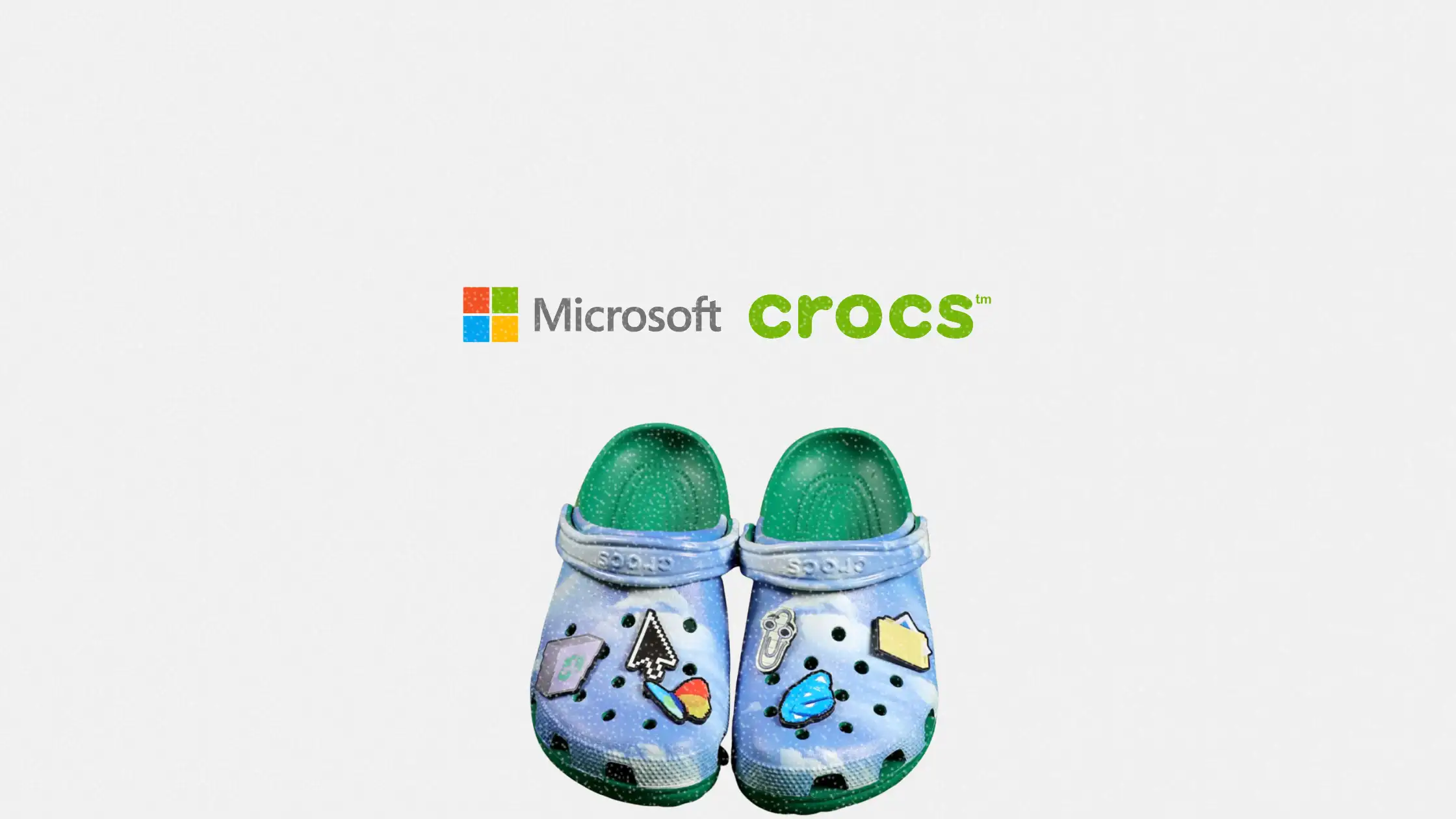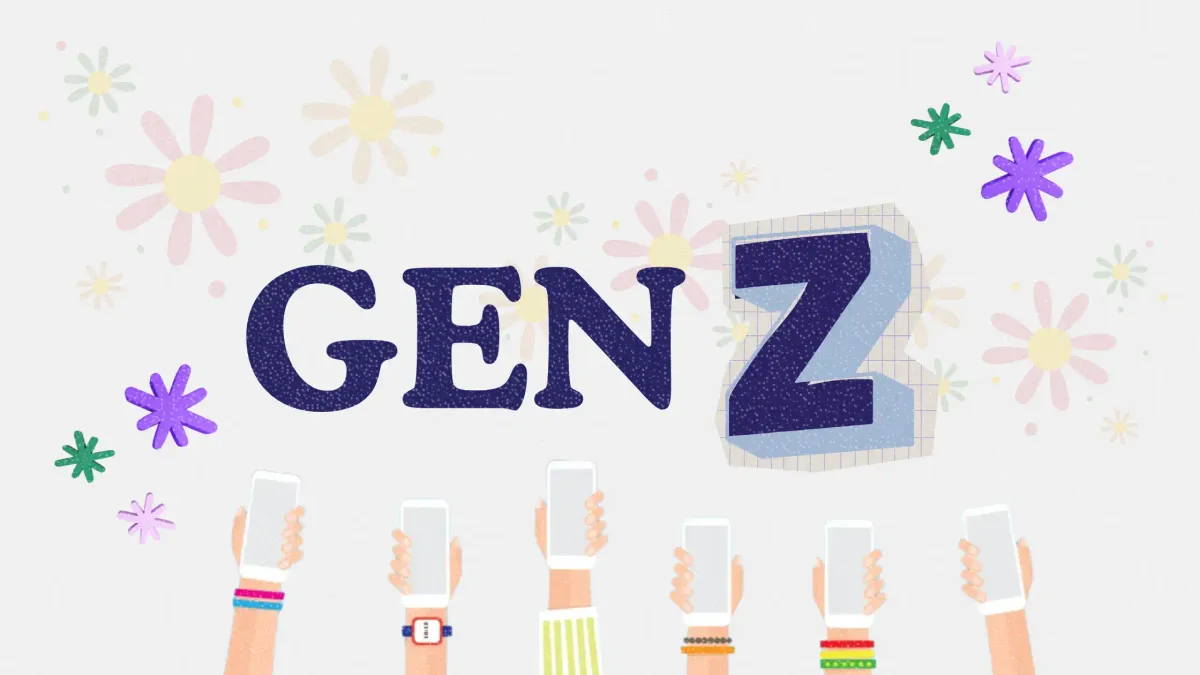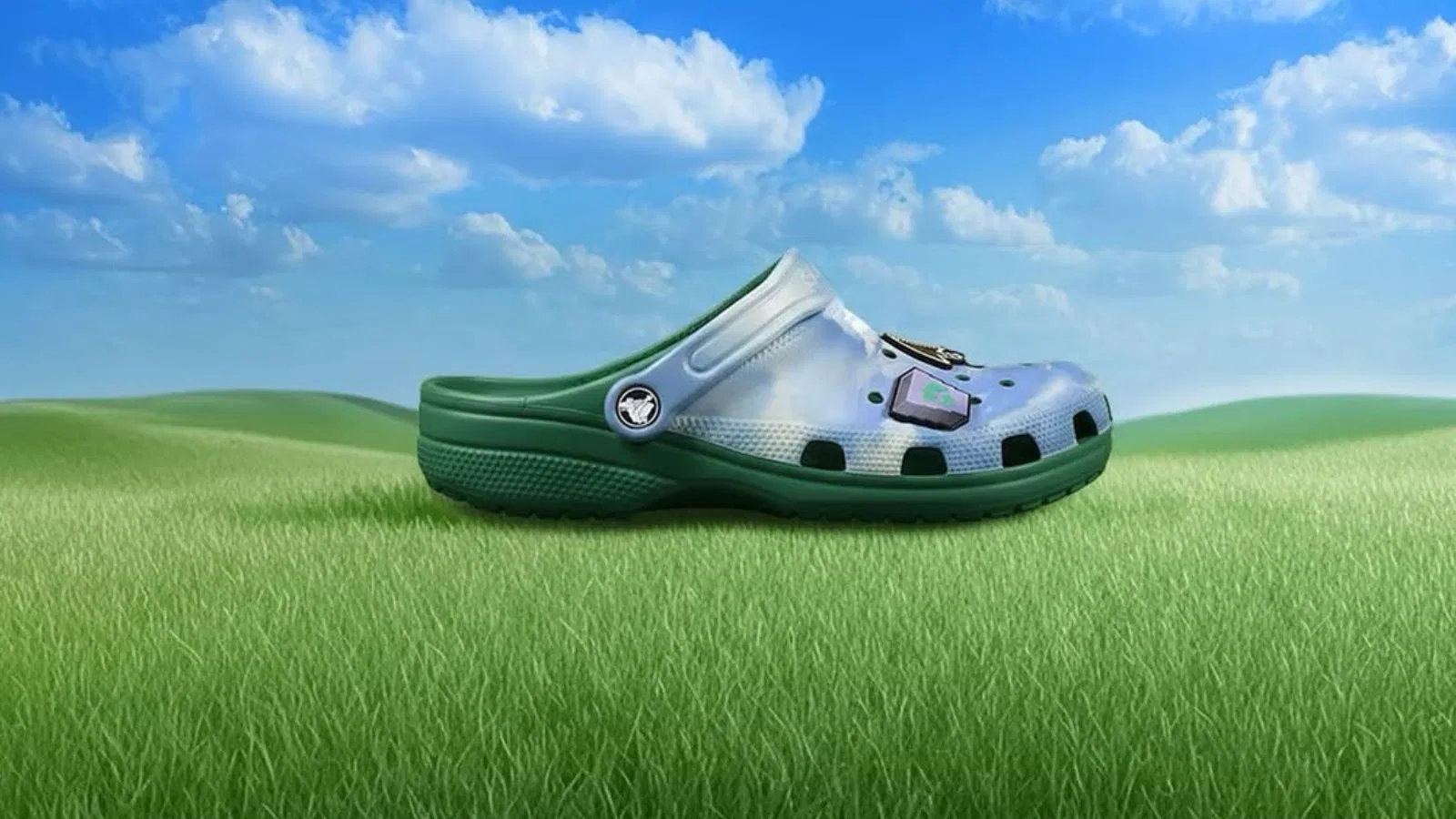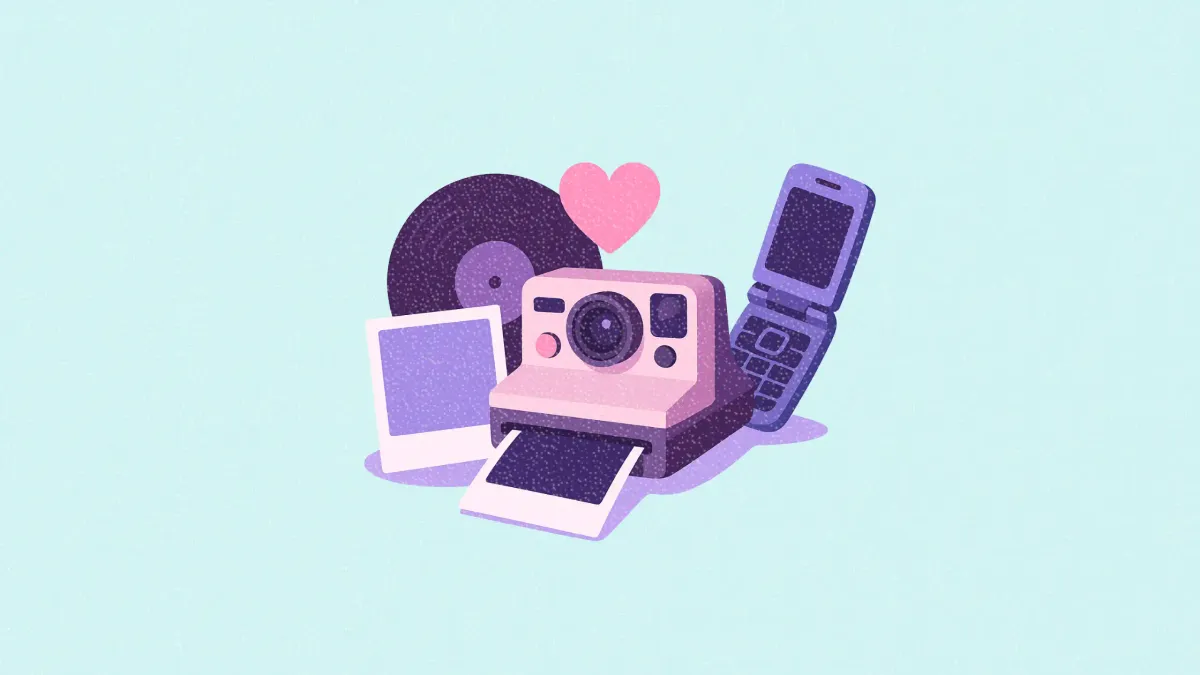Microsoft x Crocs: A nostalgia drop marketers shouldn't ignore
Microsoft’s 50th-anniversary Crocs bundle shows how legacy brands can go viral again

Microsoft just launched a limited-edition Crocs bundle to mark its 50th anniversary, tapping deep into 2000s nostalgia with references to Windows XP, Clippy, Internet Explorer, and even the Recycle Bin.
The collaboration pairs custom Crocs with Jibbitz charms and a Bliss-themed drawstring bag, turning one of the most recognizable desktop wallpapers into a fashion statement.
This article explores how Microsoft’s viral crossover with Crocs reflects a broader shift in how legacy tech brands are engaging culture. It also breaks down what it means for marketers navigating brand identity, community, and Gen Z appeal in 2025.
Short on time?
Here’s a table of contents for quick access:

What's in the Microsoft x Crocs bundle
At the center of the release is the 'Bliss' image—the iconic Windows XP wallpaper depicting a green hill and blue sky—now remixed across charms, shoe design, and a branded backpack. Fans can also collect Jibbitz charms of Clippy, the classic mouse pointer, MSN’s butterfly, the Internet Explorer logo, the recycle bin, and the yellow folder icon.

The campaign coincides with Microsoft’s 50th birthday and follows a well-received #MicrosoftCrocSweepstakes teaser campaign that built anticipation across social media. After strong buzz, the bundle is now available globally, bringing what was once internet ephemera to fans’ feet.
Why nostalgia marketing works now
Microsoft’s collab isn’t just a retro gimmick. It’s an emotionally calibrated move designed to re-engage generations who grew up on XP, MSN Messenger, and floppy disk icons. This kind of brand nostalgia is especially potent among millennials and older Gen Z audiences, who now have both the cultural capital and the spending power to drive demand.
Nostalgia has become a high-performance lever for brand differentiation, particularly as tech companies compete not only on product, but on personality and sentiment. In a market saturated with futuristic AI chatter, leaning into early-2000s internet memories offers a refreshing contrast and a reminder of Microsoft’s legacy as more than a productivity suite.
This isn’t Crocs’ first rodeo with quirky brand collabs. In 2024, it teamed up with Pringles for snack holster boots and Mr P charms. That drop proved the format works: playful, purposefully absurd, and engineered for social sharing.

What marketers should know
Here’s what brand strategists and campaign planners can take from this nostalgia-rich launch:
1. Nostalgia sells, but only when it’s specific
General throwback vibes won’t cut it. What made this bundle pop was its ultra-specific references—Clippy, Bliss, and MSN—which were instantly recognizable and emotionally loaded. For marketers, this means going narrow can be more powerful than going broad.
2. Culture-first campaigns build relevance fast
Microsoft didn’t just slap its logo on some clogs. It infused culture through imagery, memes, and long-loved quirks of its software history. Marketers looking to refresh legacy brands should look to culture-first design and fan-centric cues to create campaigns that feel earned, not manufactured.
3. Collabs can be a format, not just a one-off
From Pringles to Microsoft, Crocs is showing how repeatable, format-driven collabs can keep a brand in the cultural conversation. Marketers might consider developing their own collab playbook, particularly when entering new verticals or targeting younger demographics.
4. Offline merch can drive online engagement
What started with a sweepstakes became a social buzz magnet. Bundles like this one prove that physical merch—especially nostalgic, weird, or wearable—can catalyze digital word-of-mouth in a way that pure content marketing often can't.
Microsoft’s Crocs collab might look like a meme come to life, but it’s also a masterclass in emotional storytelling, brand consistency, and culture hacking. For marketers, it’s a reminder that even a brand known for spreadsheets and servers can still win hearts with the right cultural context and creative risk.
If nostalgia’s on your roadmap, this drop is worth studying closely. Just don’t wait 50 years to act on it.





